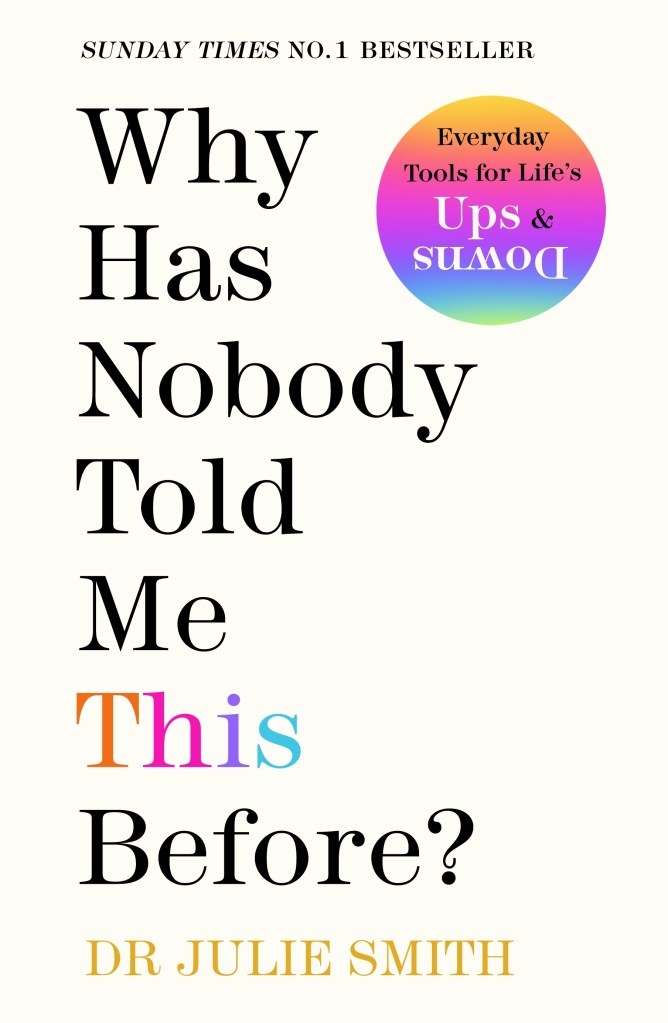Dr Julie Smith on mental health, mum life & social media
We caught up with clinical psychologist, TikTok star and author Dr Julie Smith, who is revolutionising the way we talk about mental health.
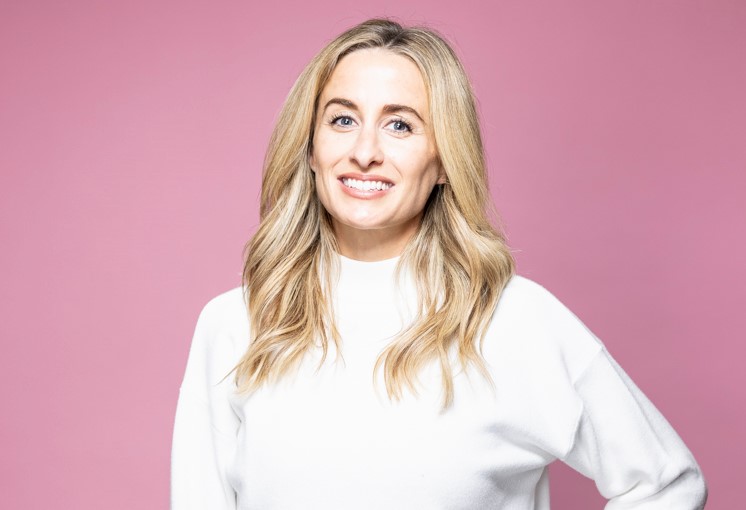
In less than three years she’s gone from working with clients in her garden to having 3.4m followers on TikTok, and the biggest self-help book of the year. We meet Dr Julie Smith, the clinical psychologist revolutionising the way we talk about the mind.
Dr Julie Smith, how did you get started working in the field of psychology?
‘I’m a clinical psychologist, and worked in the NHS for about 10 years. But once I had a couple of children, I realised I couldn’t do it all. I decided I would do private work from home – I have a little therapy room in the garden, and would see clients during school hours, to try to sort of ‘balance’ things a little better.
‘While I was doing that kind of work, I noticed that many of the people who came to therapy did a lot of talking – but they also learned a lot about how the mind works, and how you can influence your own mood and emotional state. I found that once people experienced that educational aspect of therapy, they felt empowered to manage their own mental health.’
Find out how to start journaling for your mental health
That’s quite different from having 3.4m followers on TikTok and a Sunday Times bestselling book! How did that come about?
‘I would always harp on to my husband about how people shouldn’t have to pay to come and see people like me to find out this stuff. It should be available to all. So he said, “Well, go on then, make it available.”
‘We started to make a few terrible YouTube videos. It was late 2019 at this point and, at that same time, he stumbled upon TikTok. He suggested I make some really short videos, and stick them on there instead. My initial response was “No way, I’ll get trolled talking about mental health in that kind of arena!”
‘But we decided to have a go and, very quickly, almost within a few weeks, it started to skyrocket. People were messaging me every day, to say “Thank you, that’s really helpful,” or “I’ve been inspired to go to therapy.” So we just thought, well, we need to keep going now; we’re doing a good thing here.’
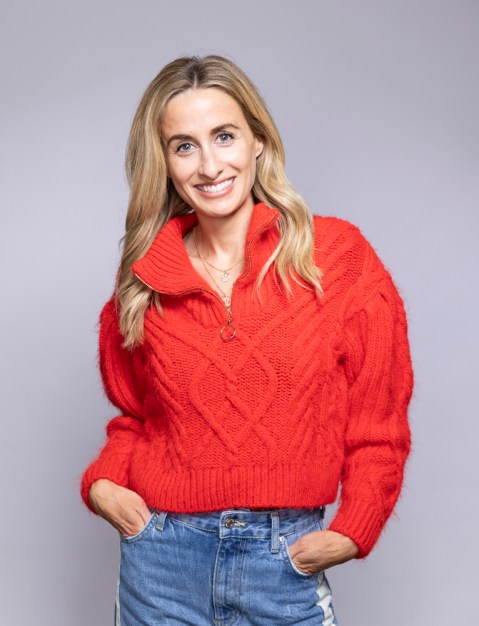
What are the challenges you face talking about these subjects on social media?
‘My main rule is that each video has to have value and a message, however small and simple; one that could sow a seed for somebody who might be in a difficult position. We played around with trying to make that as engaging as possible, because people are there with their thumb, ready to scroll on to the next thing.
‘So it became a bit of a creative challenge about how we could take some potentially boring information and talk about it in a way that was engaging. We’ve really got into using props and visuals to demonstrate a point, so we generally make a lot of mess – like when we flooded the therapy room with an overflowing ‘stress bucket’, and exploded an exercise ball!’
Check out our top cures for digital fatigue
The videos are great fun; has anyone ever accused you of ‘dumbing things down’?
‘At first, I felt really vulnerable and thought “What are my peers going to say?” We have fun with it, but it’s really important to me to hold on to credibility, and stay professional, and make everything evidence based. But the feedback that I’ve had from people such as psychologists and mental health workers I’ve worked with in the past has been really moving.
‘They’re recommending people follow me online, or buy the book, because they see it as really helpful. And teachers are using my videos in schools to start conversations about mental health. That’s just the biggest compliment that I could have.’
You are so popular now; have you had any kind of issues with impostor syndrome?
‘Every step of the way it has been challenging, because I’m quite an introverted person. I was working in my little therapy room in the garden in my small town, talking to one person at a time, and I was very happy with that. So when things started to take off, it felt like this rocket was going off, and I was just trying to hold on for dear life.
‘It was all outside of my comfort zone. I didn’t relish being up on the camera. I’ve had people come up to me in the supermarket – that’s not something that I wanted or had ambitions for.’
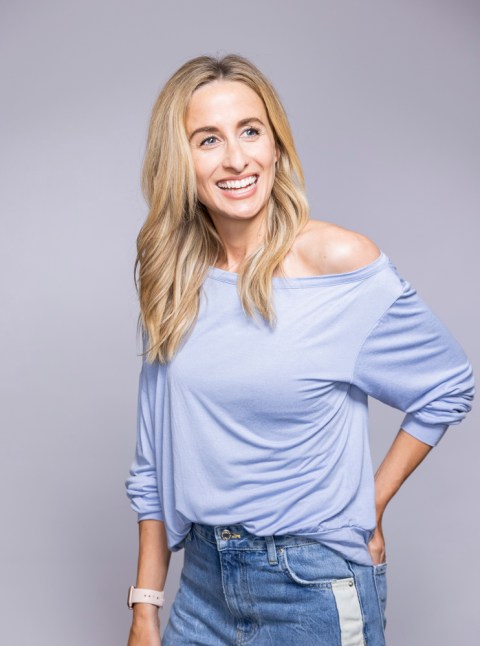
How do you cope with that attention?
‘I have to practise what I preach! It has involved me facing my own fears and stepping outside of my comfort zone. I’ve gone on live TV, talking about the book and recreating some of the videos, and things like that are a real challenge. But if it means I can reach a few more people, then I have to do it.
‘It’s like sowing seeds all the time. Like, you know, you could scatter them and they might go nowhere – but if it catches that one person at the right time, then it could be a catalyst for something really positive. So it feels like such an opportunity.’
How have you looked after yourself?
‘Social media is like a treadmill: it will gobble up as much as effort as you’re willing to put into it. So there has to come a point where you say, right, that’s my work done.
‘Previously, I had that really lovely balance of seeing individual clients in school hours, and then I was suddenly working harder than ever, putting my children to bed and then going in to my office and getting some make-up on and making videos, or writing. It’s not unusual for us to be in there until midnight. But now I’m trying to pull back and say no to things, so that I can have more balance.
‘We’ve been mindful of how we structure family time, and I’ve taken a day back in the week to spend with my youngest son, who’s not at school yet. And we try to be really focused on family time during the weekend; we’re no longer spending Saturdays filming.
‘I use values check-ins, where I think, “Okay, well, what are all these different areas of my life at the moment? What’s really important to me, and am I living in line with that?” Often, when there are lots of demands on you, it can pull you away from some of those things. And especially as a working mum, it’s been a real challenge to balance that.
‘You could say yes to everything, and then find yourself not really living in the way that you want to. It’s a positive problem to have – I have options, and that’s incredible; I feel really grateful for that. But it has challenged me to be very intentional about the choices I make, and what I say yes to and why.’
Upgrade ‘me-time’ with these essential self-care practices
We hear a lot that social media is bad for our mental health – what are your views on that?
‘I’ve thought about that a lot. But, the way I see it, I can’t make social media go away. I could sit in my therapy room, see one person at a time, and complain about the fact that there may be misinformation out there – or I could get stuck in, put out some positive, evidence-based stuff, and improve the chances that somebody might come across that instead of something else that may not be helpful to them. And so that felt like a more positive way of dealing with the way the world has changed. Rather than trying to deny it, or wish it would go away, you try to make your corner of the world more positive.’
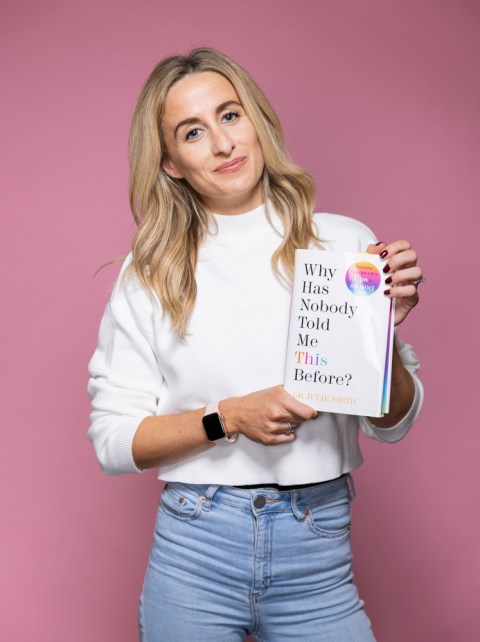
Are there ever days when you struggle to find that positivity?
‘At times there has been that pressure to create content more frequently, and that pressure to be creative so relentlessly has been really tough. Because we all have those times when you just don’t really feel like it! And particularly when I was writing my book; I was writing during lockdown and we had three children at home.
‘My youngest was then two, and running around the house, and the other two were trying to do homeschooling. And I had to get the words out each week. And we also had to create online content. So we had some late nights, because I had to write all day and then create content at night. And it became really difficult to think of new ideas. I guess everyone had their own version of that kind of exhaustion in lockdown.
‘But I think we’ve got to a point now where we can have a bit more balance. We’ll have a few days doing something else, and then we’ll come back to it. And I feel less pressure to put something online every single day now. Now, I want to take a bit of time to create a video I’m really proud of, so it doesn’t matter if a few days go by when I don’t post.’
Time for a digital detox? Learn to tackle your tech
Now you’re in the public eye, do you feel like you have to have everything sorted?
‘No, I’m still the mum that turns up at school with no make-up on every morning! I definitely sense that you can go down that route, and you can start to feel like you need to respond to that pressure. But, also, I’m really aware that my nine-year-old daughter’s watching what I do. That inspires me to be the person that I know I should be. I know she’s picking up on that, and she’ll do what I do, not what I say.’
‘I use that in terms of how I make decisions around all of this stuff. And I recognise that it could all disappear tomorrow, and it doesn’t really change my worth as a person. It’s just something I’m doing at the moment. It’s not my whole story, just part of it.’
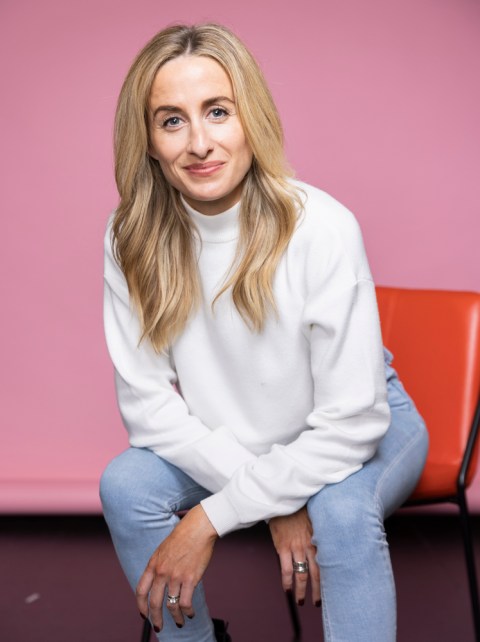
Do you have any regrets?
‘No, no, I don’t. I think there were probably times during lockdown where I might have thought, “What am I doing? Do I really want this?” But I tend to do that anyway. When I talk about those values check-ins, that’s me going “Okay, here I am at this place in my life. Is this what I want? If not, do I need to change direction?” And every point that I did those check-ins, even when it was difficult, it still felt like the right direction to move in.
‘My only concern was how much impact it was having on being the kind of mum I wanted to be. So it was a balance challenge, rather than do I want it or not. It was “How much can I do, given the family life that I want to have?”‘
Dr Julie Smith, what are your own social media rules?
‘I like to remind people to take control and hit unfollow if content is making you feel a way that you don’t want to feel, and empower people to remember we all have a degree of control over the content we consume. Algorithms are there to pick up on what you want to see, so if you tell them what you want, and what you don’t want, that can improve your experience online.’
